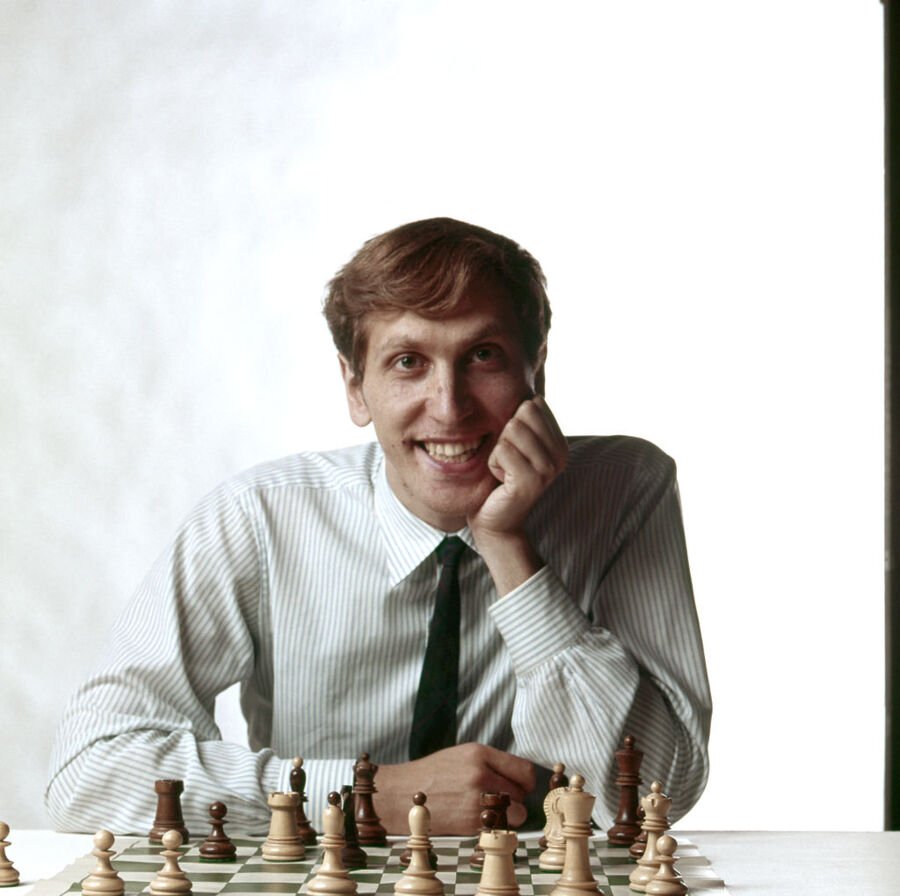What was Bobby Fischer’s Net Worth?
Bobby Fischer was an American chess grandmaster and prodigy who had a net worth of $2 million at the time of his death. Bobby Fischer won his first U.S Championship at the age of 14 and went on to make many lasting contributions to chess.
Early Life
Fischer was born on March 9, 1943 in Chicago, Illinois. His mother was Regina Fischer, who worked as a teacher before becoming a nurse and then a physician. There are a number of theories about who Fischer’s father is, as Regina had had a close relationship with Hans-Gerhardt Fischer, a German biophysicist, during the time she lived in Moscow. The two married but later separated and divorced. An investigative report published in 2002 stated that Hans was not Fischer’s father, but rather that Paul Nemenyi was. Nemenyi was a Hungarian mathematician and physicist that Regina met during her time in Europe. The report also established that Nemenyi took a keen interest in Fischer’s upbringing in New York and paid for his schooling. Whether or not Nemenyi was Fischer’s father was not ever concerned by Fisher or his mother.
Fischer began playing chess when he was six years old with his older sister Joan. He then began playing games against himself as he got older and studied the game and its strategy intensely. After playing in an exhibit against some professional chess players, Fischer drew the attention of Carmine Nigro, the president of the Brooklyn Chess Club, who began coaching him. By July of 1956, Fischer won the US Junior Chess Championship, becoming the youngest ever champion at the age of 13.
Career
After experiencing such massive success so young, Fischer only became more motivated to become the most dominant chess player in the world. In 1957, Fischer wanted to travel to Moscow to compete in the 6th World Youth and Student Festival. His mother wrote to the Soviet leader, Nikita Khruschchev, in order to request an invitation. However, the affirmative reply came too late for his mother to pull together the money for the airfare to fly to Russia. However, the following year, he appeared on the game show “I’ve Got a Secret” and was surprised by the producers with two round-trip tickets to Russia to participate in the 1958 event.
Upon arrival in Russia, he played multiple speed chess rounds with the Soviet chess masters, Evgeni Vasiukov and Alexander Nikitin, winning every round. However, he wanted to play against the reigning world champion, Mikhail Botvinnik, but his request was denied. This angered the young Fischer, who then traveled to Yugoslavia to play against some of the top players there.
As Fischer got older, he started dressing with more care and began buying suits that were hand-tailored. He also became so involved with chess that he decided to end his formal education at the age of 16. However, he continued learning and even taught himself several languages in order to be able to read chess periodicals from around the world. He also was forced to become more independent, as his mother moved out of their apartment in order to pursue medical training to become a doctor.
Throughout his late teens and early 20s, Fischer became an even more prolific chess player. In 1964, he won the U.S. Championship with a perfect score, winning all eleven of his games. By the age of 23, Fischer would become so dominant that he won any match or tournament he participated in for the remainder of his life.
(Photo by David Attie/Getty Images)
However, after winning the 1972 World Chess Championship, Fischer did not play another competitive game in public for almost 20 years. He only reemerged to play a revenge match against Boris Spassky in 1992. He won the match with ten total wins, five losses, and fifteen draws. His participation in the match had been forbidden by the U.S. government, as there were sanctions against economic activities in Yugoslavia at the time. After the match, he began living in Budapest and then the Philippines. In 2005, Iceland granted Fischer citizenship. He lived in Iceland until his death in 2008.
Fischer’s impact on the game of chess cannot be understated. He wrote heavily on the subject and developed a number of theories related to how to properly open a game. He also had renown endgame techniques. In 1988, he filed for a patent for a new type of chess clock and clocks based on Fischer’s design have become the standard for chess clocks to this day.
Personal Life
Fischer’s personality quirks and strange behavior led some to speculate that he may have some sort of psychological condition, though he was never formally diagnosed. Fischer had several relationships with women throughout his life. During his time living in the Philippines, he met a 22-year-old woman named Marilyn Young and began a relationship with her. Young later claimed that the child she gave birth to in 2001 was Fischer’s, though this claim was later disproven by DNA.
Fischer was interested in various religions throughout different stages of his life. He was raised by a Jewish mother but rejected attempts to be labeled as Jewish. He then became involved with the Worldwide Church of God in the mid-1960s and contributed significant money to the church throughout his life. Towards the end of his life, he became interested in Catholicism.

